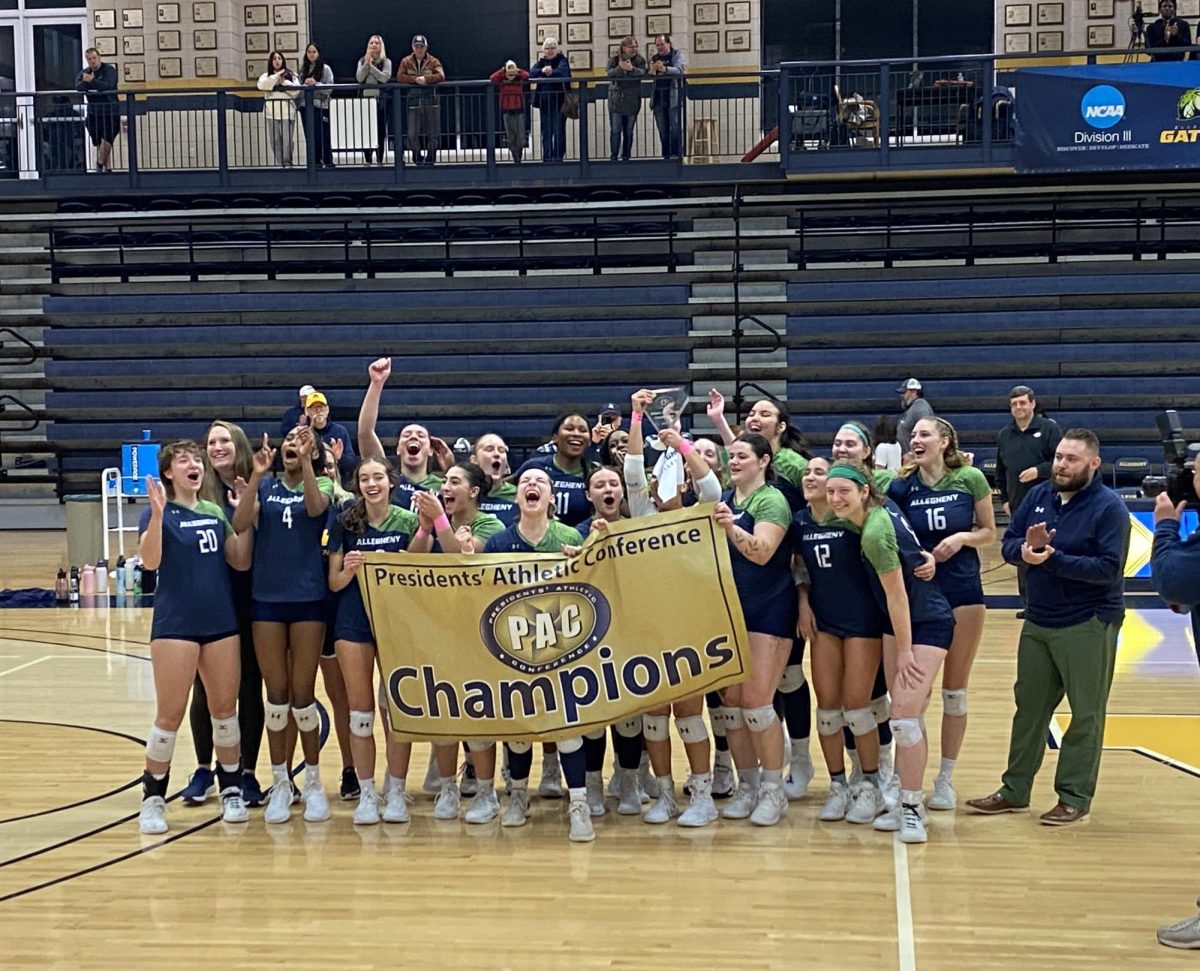By KRISTY SNYDER
[email protected]
Last Saturday students from the Allegheny College Computer Science department competed in the largest programming competition in the world.
The East Central North America Regional of the Battle of the Brains competition, more formally known as the ACM International Collegiate Programming Contest, took place at Youngstown State University. Teams of three students each had five hours to try to solve eight complex problems. The contest is sponsored by IBM and boasts nearly 22,000 competitors worldwide.
This year, the University of Waterloo and Carnegie Mellon University were first and second, respectively, each solving all eight problems. Allegheny tied with the 34 other teams that failed to solve any problems and received an honorable mention.
According to Director of Strategy of IBM Software Group and Sponsorship Executive if the ICPC Doug Heintzman, being in the same division as these larger schools makes it difficult for any small school to make it past the regional level.
“Even Harvard doesn’t make it every year,” said Heintzman. “Some small colleges do get through and make it every few years. You find yourself with the right professor and two or three really solid programmers, and it’s possible.”
“You can probably count the number of small schools who made it to finals on one hand,” said Professor Robert Roos, coach of Allegheny’s team for the event. “Even for a school from America, to win is rare.”
Roos has been involved with the competition since 1996, and has been a judge at the World Finals level. He formed the Allegheny team, comprised of Jonathan Kauffman, ’12, Dibyo Mukherjee, ’14, Will Yaworsky, ’11, and alternate Radu Creanga, ’11, by extending an invitation to students enrolled in computer science classes.
“It was more volunteer than selection,” Roos said. “Some schools hold little contests locally to pick people, but in the past few years we’ve had trouble getting teams together because of scheduling.”
Along with holding mini-competitions to choose their teams, some schools create classes to educate students specifically in problems similar to those posed during the competition.
“This contest shouldn’t be part of your studies,” Kauffman said. “It should be something that compliments it.”
Even if some competitors have an edge because of their preparation, it does not guarantee them a win.
“There’s always one or two problems not solvable, or that haven’t yet been solved,” Creanga said. “They always hope that someone will solve them. They increase in complexity at an exponential rate.”
IBM took over the sponsorship of the contest in 1997, and since then participation has increased by 800 percent.
“My job is to open their eyes up,” Heintzman said. “We try to give them a window into what the application of their work means in the real world.”





Kathy • Oct 29, 2010 at 11:52 am
Really well done article, Kristy! I’m familiar with the contest, and you captured its challenges. I enjoyed reading this.